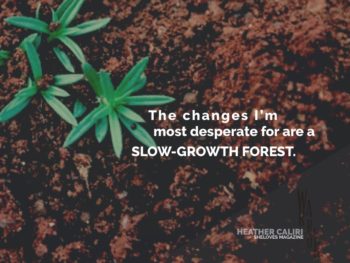
The night before I left college, I got home late. There, at my door, I found a wrapped package: a graduation gift from Stacy, one of my closest friends from church. She’d finished and framed an exquisite cross-stitch of one of my favorite verses.
The sight made my heart sink. I’d missed saying goodbye. The ache of moving away filled my eyes with tears. I wondered: will I ever have such good friends as I made here? Will I ever have this kind of community again?
That was the fear that followed me as I packed my car with my worldly possessions. And it stuck with me for years. Because honestly, my worry wasn’t baseless. Finding friendships and community as an adult is a work-in-progress for me.
And for the longest time, I thought it was because I was incompetent.
Don’t get me wrong—I’ve made and maintained amazing friends. But the process is harder than I wanted it to be. Even when I made friends, the relationships often changed in ways I didn’t expect or desire.
If you’d told me I’d struggle with friendship the night I missed Stacy’s goodbye, I might have barricaded myself in my dorm room. But the more I’ve mulled over friendships post-college, the more I’ve realized that I wish I’d known what to expect of post-college relationships—both their challenges, and their surpassing joys.
Here’s what I wish I’d known.
It’s harder to find community as an adult.
School is like the rainforest of relationships: in the close quarters and shared experiences, friendships grow like mad. Add in a college Christian fellowship experience—and you create incredible relationships in a few short years.
It’s painful when that fertile environment disappears—suddenly, your work, home life, and church life are often completely separate. Add to that our individualistic culture and even the most gregarious and well-connected of us can battle to create community.
Being honest about loneliness is a doorway to connection.
My sense that I was the only one who struggled with community kept me anxious and isolated for years. Only when I started confessing my alienation to others did I discover my experience was pretty normal. Be transparent with others, and ask for help. You’d be surprised how the shared struggle of connection might deepen your existing relationships—and connect you to new people.
Life transitions can mean loneliness.
I thought that the pain of leaving college friends behind was an anomaly. As an adult, I planned to stay put; surely that way I’d avoid feeling painful loneliness ever again.
But loneliness kept showing up every time my life changed. Just when I was struggling to reinvent myself, I had to reinvent my friendships, too.
This is true for everyone. Job changes, Illnesses, church splits, or even your kid starting school all throw wrenches in how you relate to your friends. Loneliness during those transitions is inevitable.
Struggles mature you, making you a better friend.
The hard transitions of my life were crucibles, burning away a lot of my arrogance and self-deception. Often, they forced me to depend on people in ways that made me uncomfortable, especially after I became a mother. Now, I see that my closest, most fruitful friendships were forged and strengthened in those times, and have endured because of the maturity God sowed in my heart while I struggled.
Even wonderful friendships face intense conflict.
I still miss the friend I lost. We were unbelievably close; not just her and I, but our families. When our relationship died, it took me years to grieve. For the longest time, I thought the estrangement meant I was a bad friend.
But after managing other conflicts, I’ve seen that just like in marriage, some disagreements in friendship are inevitable. Estrangement didn’t mean my friend or I were terrible people—it meant we were human.
Reconciliation is worth it.
Even though my old friend and I don’t keep in touch, I’m proud that we both sought reconciliation and peace with each other. I still love and appreciate her, even though our friendship didn’t survive. And the lessons I learned from that conflict have helped me be wiser in others. Having been through the pain of a broken friendship, I’m more proactive about seeking healing.
Shared faith and church involvement isn’t magical friendship glue.
In school, I forged my closest friendships and community through my university’s Christian fellowship. After graduation, I thought plugging into church would guarantee community forever and ever, amen.
But to my chagrin, church community has waxed and waned with my faith struggles, life stages, and changes in the church itself. My expectation that friendships would magically spring up on Sundays got crushed. For years, that made me cynical about relationships, church, and faith itself.
Realism about the Body of Christ produces gratitude.
Looking back, I wish I’d been more realistic about church’s limitations, and more grateful when community did happen like I hoped. Because of my overblown expectations, I often took the friendships I found in church for granted.
I no longer expect my church to magically shield me from loneliness. Friendships are work, and they’re always gifts of God. To believe otherwise is to denigrate God’s generous provision and treat God’s people like a vending machine.
The community I forged in college was so life-giving that it seemed like the whole world. But college didn’t actually last that long. Despite my sense that making friendships after school is hard, I’ve been blessed with several that have lasted more than a decade, something impossible in the short space of school.
College taught me to take friendship almost for granted—but the adult struggle for connection has taught me to savor it instead.
Now, as I think of college-age me, afraid of loneliness, I wish I could bend down and whisper in her ear. Don’t be afraid, I’d tell her. It’s not always easy, but the friendships you do find will be sweeter than you can imagine.
Image credit: Julia Caesar. Originally posted on Relevant.com.














 Are you willing to listen to the darkness? for The Mudroom
Are you willing to listen to the darkness? for The Mudroom